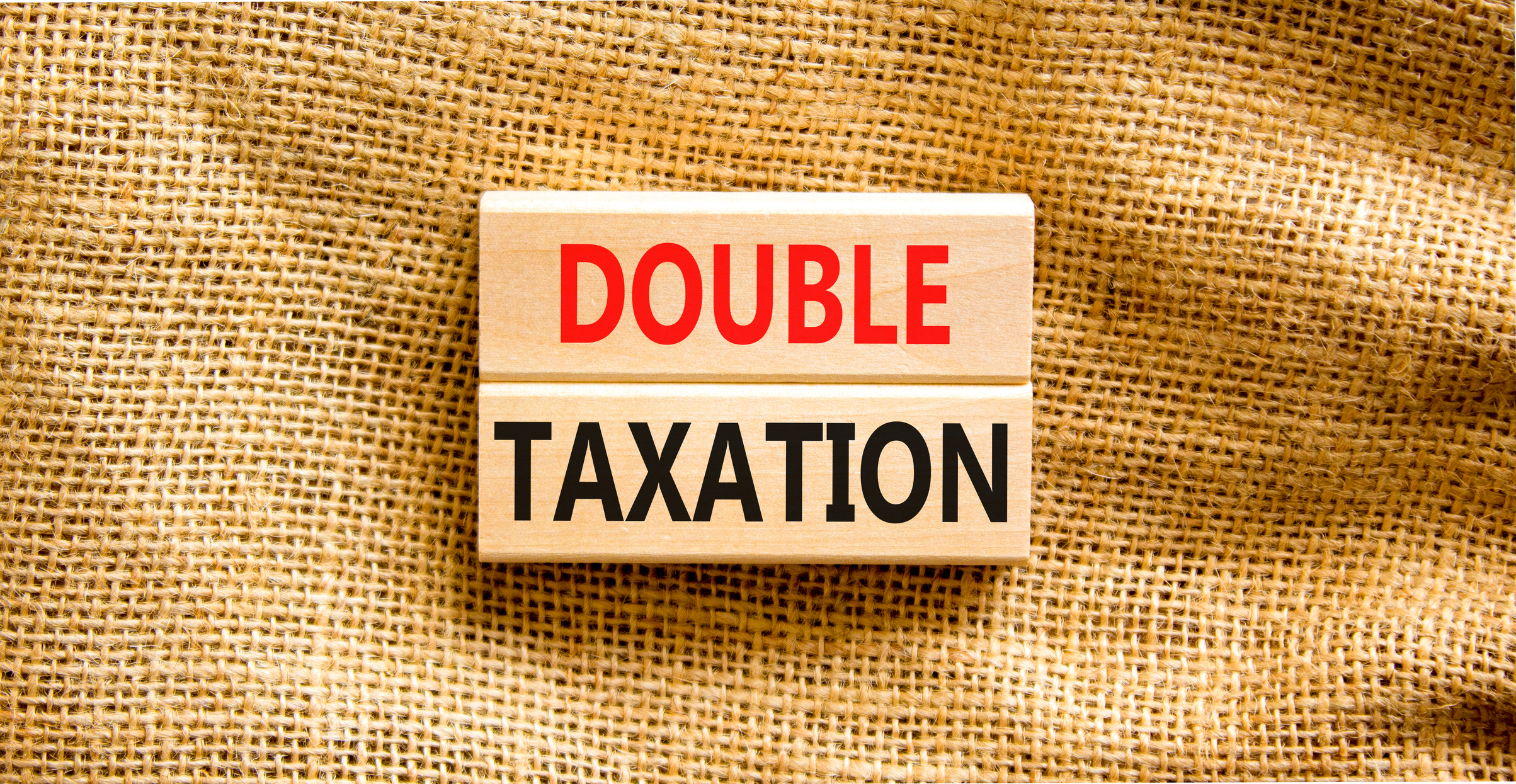Washington Approves Capital Gains Tax Increase for 2025: Who Pays?
Here's what high-income filers need to know about Washington's latest tax hike.


Profit and prosper with the best of Kiplinger's advice on investing, taxes, retirement, personal finance and much more. Delivered daily. Enter your email in the box and click Sign Me Up.
You are now subscribed
Your newsletter sign-up was successful
Want to add more newsletters?

Delivered daily
Kiplinger Today
Profit and prosper with the best of Kiplinger's advice on investing, taxes, retirement, personal finance and much more delivered daily. Smart money moves start here.

Sent five days a week
Kiplinger A Step Ahead
Get practical help to make better financial decisions in your everyday life, from spending to savings on top deals.

Delivered daily
Kiplinger Closing Bell
Get today's biggest financial and investing headlines delivered to your inbox every day the U.S. stock market is open.

Sent twice a week
Kiplinger Adviser Intel
Financial pros across the country share best practices and fresh tactics to preserve and grow your wealth.

Delivered weekly
Kiplinger Tax Tips
Trim your federal and state tax bills with practical tax-planning and tax-cutting strategies.

Sent twice a week
Kiplinger Retirement Tips
Your twice-a-week guide to planning and enjoying a financially secure and richly rewarding retirement

Sent bimonthly.
Kiplinger Adviser Angle
Insights for advisers, wealth managers and other financial professionals.

Sent twice a week
Kiplinger Investing Weekly
Your twice-a-week roundup of promising stocks, funds, companies and industries you should consider, ones you should avoid, and why.

Sent weekly for six weeks
Kiplinger Invest for Retirement
Your step-by-step six-part series on how to invest for retirement, from devising a successful strategy to exactly which investments to choose.
Washington State is making headlines again with significant changes to its tax code. A higher capital gains tax rate for top earners is part of a sweeping budget package signed into law last week by Gov. Bob Ferguson.
“To get a budget in a challenging situation to the finish line, it’s going to require working together and a lot of compromise,” Ferguson said of the bill. “I believe we accomplished that with this budget.”
Alongside the capital gains tax hike, the legislation raises the state’s gas tax rate (more on that below) and estate tax exemption. It also increases business taxes and introduces new sales taxes on certain services.
From just $107.88 $24.99 for Kiplinger Personal Finance
Become a smarter, better informed investor. Subscribe from just $107.88 $24.99, plus get up to 4 Special Issues

Sign up for Kiplinger’s Free Newsletters
Profit and prosper with the best of expert advice on investing, taxes, retirement, personal finance and more - straight to your e-mail.
Profit and prosper with the best of expert advice - straight to your e-mail.
Overall, the biennial budget appropriates about $77.8 billion, a 6.5% increase over the previous period.
But, the state’s capital gains tax, first implemented in 2022, has arguably been one of Washington's most debated fiscal policies in recent years. Two years ago, the state’s Supreme Court upheld the capital gains tax, and voters rejected a proposed tax repeal during last year’s November elections.
So, what’s changing for 2025 and who’s affected? Read on.
New WA capital gains tax rate takes effect for 2025
Washington’s capital gains tax initially imposed a 7% tax on long-term capital gains above an annual exemption ($270,000 for 2024, with inflation adjustments).
The tax applies to profits from the sale of stocks, bonds, and other non-retirement assets, while exempting real estate, retirement accounts, and many small business sales.
With the passage of this bill, a new 2.9% surcharge applies to net long-term capital gains exceeding $1 million above the exemption, effective retroactively from January 1, 2025.
That brings the top rate to 9.9% for the largest gains.
Here’s how the new structure works:
Gains up to the exemption | No Tax |
Gains between the exemption and $1 million above it | 7% Tax |
Gains above $1 million over the exemption | 9.9% Tax |
Proponents say the structure is designed to target the state’s highest earners, with fewer than 8,200 households expected to be affected.
The new law also allows for up to $100,000 in charitable deductions and continues to exempt real estate and retirement accounts, meaning most Washingtonians won’t see any direct impact.
Opposition to Washington’s capital gains tax
Some critics have argued that, particularly since Washington is a state with no income tax, the capital gains levy harms small businesses and innovation.
- The measure was challenged in court as an unconstitutional income tax.
- However, the Washington Supreme Court upheld the tax in 2023, and the U.S. Supreme Court declined to hear an appeal.
- The capital gains debate peaked during the 2024 election, when Initiative 2109, a measure to repeal the capital gains tax, appeared on the state’s November ballot.
As Kiplinger reported, voters rejected the repeal effort, with over 63% voting “no.”
Additionally, the capital gains tax has sparked warnings of “wealth flight.” Some critics worried that high-income individuals and entrepreneurs would leave Washington for states with lower or no capital gains taxes.
However, data tells a different story. In its first year, the tax generated $786 million — well above projections — while a subsequent drop to $433 million was tied to market volatility, not a mass exodus of wealthy residents, according to the state’s Department of Revenue.
Essentially, state data and independent analysis haven’t found a significant uptick in out-migration due to the tax.
State capital gains tax rates
Though it’s worth noting that some other states are moving away from capital gains taxes.
Missouri, for example, could become the first state to eliminate its capital gains tax. For more information, see Missouri Leads on Capital Gains Tax Repeal.
With its new 9.9% top capital gains rate, Washington now matches Oregon and sits just below California (13.3%) and Hawaii (11%), according to the Tax Foundation.
However, Washington’s high exemption threshold means a much smaller percentage of residents are subject to the tax compared to those states.
As noted, the law contains some exemptions for real estate, retirement accounts, and many small businesses, which supporters say are designed to keep the tax targeted at the state’s wealthiest investors.
Still, since the new rates take effect retroactively from January 1, 2025, affected taxpayers will need to account for the higher rate when filing their 2025 returns in April 2026.
Washington gas tax hike?
The 2025 Washington budget package brings several other notable tax changes.
- The new transportation budget pushes the state gas tax up by 6 cents per gallon for regular fuel and 12 cents for diesel starting July 1.
- That will raise the gas tax from 49.4 to 55.4 cents per gallon, when Washington is already among the states with the highest gas taxes.
- After that, the tax will automatically climb by 2% each year beginning in mid-2026.
Some state leaders say this move is needed to keep road and ferry projects from stalling out as construction costs rise and the budget gap widens. Though even the governor acknowledged the challenges involved.
“The people of the state of Washington expect us to invest in those projects, but we have limited revenue options right now. The gas tax, unfortunately, is one of them,” Ferguson told reporters.
Beyond the gas tax, in Washington, the estate tax exemption rises to $3 million, while the top estate tax rate jumps from 20% to 35% for estates over $9 million.
State lawmakers also approved new sales taxes on services like temporary staffing and advertising, a tax on rented self-storage units, and new levies related to electric vehicle credits.
Related
Profit and prosper with the best of Kiplinger's advice on investing, taxes, retirement, personal finance and much more. Delivered daily. Enter your email in the box and click Sign Me Up.

Kelley R. Taylor is the senior tax editor at Kiplinger.com, where she breaks down federal and state tax rules and news to help readers navigate their finances with confidence. A corporate attorney and business journalist with more than 20 years of experience, Kelley has helped taxpayers make sense of shifting U.S. tax law and policy from the Affordable Care Act (ACA) and the Tax Cuts and Jobs Act (TCJA), to SECURE 2.0, the Inflation Reduction Act, and most recently, the 2025 “Big, Beautiful Bill.” She has covered issues ranging from partnerships, carried interest, compensation and benefits, and tax‑exempt organizations to RMDs, capital gains taxes, and energy tax credits. Her award‑winning work has been featured in numerous national and specialty publications.
-
 Quiz: Do You Know How to Avoid the "Medigap Trap?"
Quiz: Do You Know How to Avoid the "Medigap Trap?"Quiz Test your basic knowledge of the "Medigap Trap" in our quick quiz.
-
 5 Top Tax-Efficient Mutual Funds for Smarter Investing
5 Top Tax-Efficient Mutual Funds for Smarter InvestingMutual funds are many things, but "tax-friendly" usually isn't one of them. These are the exceptions.
-
 AI Sparks Existential Crisis for Software Stocks
AI Sparks Existential Crisis for Software StocksThe Kiplinger Letter Fears that SaaS subscription software could be rendered obsolete by artificial intelligence make investors jittery.
-
 How to Open Your Kid's $1,000 Trump Account
How to Open Your Kid's $1,000 Trump AccountTax Breaks Filing income taxes in 2026? You won't want to miss Form 4547 to claim a $1,000 Trump Account for your child.
-
 In Arkansas and Illinois, Groceries Just Got Cheaper, But Not By Much
In Arkansas and Illinois, Groceries Just Got Cheaper, But Not By MuchFood Prices Arkansas and Illinois are the most recent states to repeal sales tax on groceries. Will it really help shoppers with their food bills?
-
 7 Bad Tax Habits to Kick Right Now
7 Bad Tax Habits to Kick Right NowTax Tips Ditch these seven common habits to sidestep IRS red flags for a smoother, faster 2026 income tax filing.
-
 New Plan Could End Surprise Taxes on Social Security 'Back Pay'
New Plan Could End Surprise Taxes on Social Security 'Back Pay'Social Security Taxes on Social Security benefits are stirring debate again, as recent changes could affect how some retirees file their returns this tax season.
-
 Living in One State, Working in Another: How to Avoid a Tax Season Headache
Living in One State, Working in Another: How to Avoid a Tax Season HeadacheState Tax Living and working in two states can take a heavy toll on your paycheck and give you a headache come tax time. Here's what to know.
-
 New Gambling Tax Rule Impacts Super Bowl 2026 Bets
New Gambling Tax Rule Impacts Super Bowl 2026 BetsTaxable Income When Super Bowl LX hype fades, some fans may be surprised to learn that sports betting tax rules have shifted.
-
 Should You Do Your Own Taxes This Year or Hire a Pro?
Should You Do Your Own Taxes This Year or Hire a Pro?Taxes Doing your own taxes isn’t easy, and hiring a tax pro isn’t cheap. Here’s a guide to help you figure out whether to tackle the job on your own or hire a professional.
-
 Trump $10B IRS Lawsuit Hits an Already Chaotic 2026 Tax Season
Trump $10B IRS Lawsuit Hits an Already Chaotic 2026 Tax SeasonTax Law A new Trump lawsuit and warnings from a tax-industry watchdog point to an IRS under strain, just as millions of taxpayers begin filing their 2025 returns.